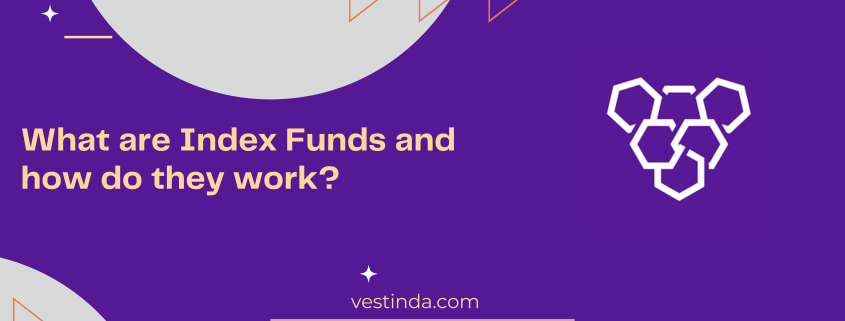Ever heard of a way to invest that’s both simple and effective? Enter index funds, the unsung heroes of the investment world. These funds offer a straightforward approach to building wealth by tracking a specific market index, like the S&P 500. But what exactly are index funds, and how do they work?
In this article, we’ll dive into the basics of index funds, explore their benefits, and compare them to other investment options. We’ll also discuss how to choose the right index fund for your portfolio and debunk some common myths surrounding these popular investment vehicles. So, whether you’re a seasoned investor or just getting started, read on to discover the ins and outs of index funds and how they can help you achieve your financial goals.
Article summary
What are index funds?
Index funds are a type of mutual fund or exchange-traded fund (ETF) designed to track the performance of a specific market index, such as the S&P 500 or the NASDAQ-100. Unlike actively managed funds, which aim to outperform the market through stock selection and market timing, index funds seek to replicate the returns of their respective market indexes by holding a portfolio of securities that mirrors the index’s constituent stocks or bonds.
By investing in a diversified basket of securities that represent a particular market segment or asset class, index funds offer investors a low-cost and passive investment strategy to gain exposure to the broader market and potentially achieve market-matching returns over the long term. Index funds are known for their simplicity, transparency, and cost-effectiveness, making them a popular investment choice for both novice and experienced investors seeking to build a diversified portfolio and achieve their financial goals through disciplined and long-term investing.
How do index funds work?
Let’s dive into how index funds work in a way that’s easy to grasp. Imagine you want to invest in the stock market but don’t have the time or expertise to pick individual stocks. That’s where index funds come into play! Index funds are designed to track the performance of a specific market index, like the S&P 500 or the NASDAQ-100.
Here’s how it works: Instead of trying to beat the market by selecting individual stocks, an index fund simply aims to replicate the performance of its chosen index by holding a diversified portfolio of the index’s constituent stocks. So, if you invest in an S&P 500 index fund, for example, the fund will buy shares in all 500 companies that make up the S&P 500 in proportions that mirror the index.
The beauty of index funds lies in their simplicity and cost-effectiveness. Because they are passively managed, index funds have lower operating expenses compared to actively managed funds, which typically have higher fees due to the active trading and research involved. This cost advantage allows you to keep more of your investment returns over the long term.
Another key benefit of index funds is diversification. By investing in a broad range of companies across different sectors and industries, index funds help spread your investment risk. This means that even if one company or sector performs poorly, it won’t significantly impact the overall performance of your investment.
Overall, index funds offer a straightforward and accessible investment option for investors of all experience levels, providing a low-cost and diversified way to gain exposure to the broader market and potentially achieve market-matching returns over the long term.
Pros and Cons of index funds
Let’s explore the key pros and cons to help you make an informed decision.
Pros 👍
- Low Costs: Index funds are known for their low expense ratios compared to actively managed funds. By tracking a specific market index, index funds require minimal active management, resulting in lower operating expenses and fees. This cost advantage allows investors to retain a larger portion of their investment returns over the long term.
- Diversification: Index funds provide investors with broad market exposure by holding a diversified portfolio of securities that mirror the index they track. This diversification helps to spread investment risk across multiple companies, sectors, and asset classes, reducing the impact of poor performance by any single stock or sector on the overall portfolio.
- Simplicity and Accessibility: Index funds offer a straightforward and accessible investment option for investors of all experience levels. With a single fund, investors can gain diversified exposure to an entire market segment or asset class without the need for extensive research or individual stock selection.
- Transparency: Index funds maintain a high level of transparency in their operations, holdings, and performance. Investors can easily access comprehensive information about the fund’s underlying assets, tracking error, and expense ratio, enabling them to make informed investment decisions.
- Consistent Performance: Index funds aim to replicate the performance of a specific market index by holding a representative portfolio of the index’s constituent securities. Over the long term, these funds have historically delivered competitive returns that closely mirror the performance of their respective market indexes.
Cons 👎
- Limited Upside Potential: Index funds aim to replicate the performance of a specific market index, which means they are designed to match the market’s returns rather than outperform it. As a result, these funds may not capture the full upside potential of individual outperforming stocks or sectors within the index.
- Lack of Flexibility: Index funds are passively managed and adhere to a predetermined investment strategy based on the index they track. This lack of flexibility can limit the fund manager’s ability to capitalize on market opportunities, adjust to changing market conditions, or avoid potential risks associated with overvalued or underperforming securities.
- Market Volatility: Since index funds aim to mirror the performance of a market index, they are susceptible to market volatility and downturns. During bear markets or prolonged periods of market stagnation, these funds may experience significant declines in value, potentially leading to losses for investors.
- Tracking Error: Despite their best efforts, index funds may not always perfectly track the performance of their respective market indexes due to factors such as fund expenses, trading costs, and sampling methods. This tracking error can result in slight underperformance or divergence from the index’s returns, affecting the fund’s overall performance.
- Overdependence on a Single Market Segment: Investing solely in an index fund exposes investors to the risks associated with a single market segment or asset class. Lack of diversification across different asset classes, sectors, or geographical regions can increase portfolio volatility and potential losses during market downturns.
Are index funds a good investment?
Yes, index funds can be a good investment for investors, especially those seeking a simple, cost-effective, and diversified approach. By tracking the performance of a specific market index, like the S&P 500, index funds offer broad market exposure, helping to spread investment risk across multiple companies and sectors.
Index funds also have lower expense ratios compared to actively managed funds, allowing investors to keep more of their investment returns over the long term. However, it’s important to consider your investment goals, risk tolerance, and time horizon when evaluating the suitability of index funds for your portfolio. While index funds aim to replicate the market’s returns, they may not capture the full upside potential of individual outperforming stocks or sectors within the index.
Can I invest $100 in index funds?
Yes, you can invest $100 in index funds through certain investment platforms that offer low initial investment options. Some index funds and exchange-traded funds (ETFs) have low minimum investment requirements, allowing investors to start investing with a small amount of money. Additionally, some platforms offer fractional share investing, which allows you to purchase a fraction of a share in an index fund with as little as $1 or less. However, it’s essential to research and choose an index fund or ETF that aligns with your investment goals, risk tolerance, and time horizon, and consider any associated fees or expenses before investing.
Do billionaires invest in index funds?
Many billionaires and savvy investors, including Warren Buffett, recommend index funds as a core investment strategy due to their simplicity, low costs, and long-term performance potential. While billionaires may have access to a wider range of investment opportunities and strategies, they often recognize the benefits of index funds for building a diversified portfolio and achieving market-matching returns over time. By investing in index funds, billionaires can effectively manage investment risk, minimize fees, and focus on long-term wealth accumulation rather than trying to beat the market through stock picking or market timing.

Ebiere Watchman is a prolific writer specialized in web 3.0 and finance. Ebiere’s experience includes research projects, sales copywriting, and storytelling. She prides herself in crafting impeccable content to drive mass adoption in cryptocurrency.


